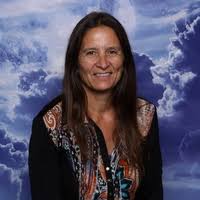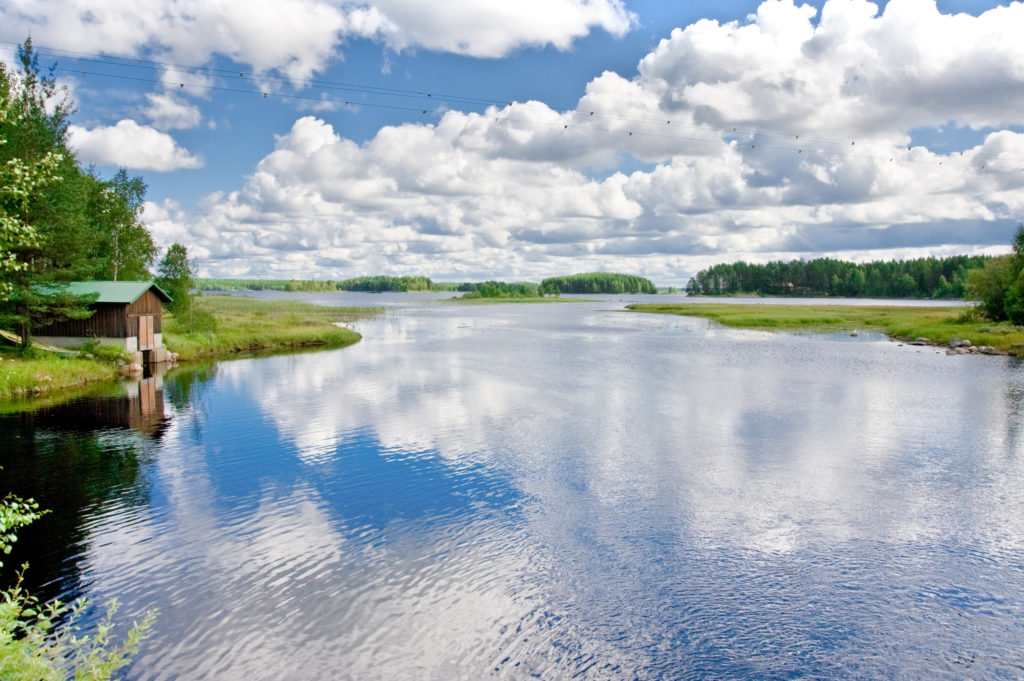An Anishinaabek researcher consults with Elders and women from the Great Lakes territory, sums up the work of “a wave of Indigenous scholars” and weaves together decolonializing with Indigenous methodologies. With this, she offers some brilliant revelations that will inform future governance around the sustainability of water.
York University is committed to respectful, relevant, Indigenous-formed and -led research, scholarship and related creative activity. Indigenous research paradigms are, broadly speaking, gaining momentum. But few, if any, scholars researching sustainable water governance have applied Indigenous research methods or took into consideration the untapped knowledge from Elders, language speakers and Indigenous women in this area.

Until now. A PhD student in the Faculty of Environmental and Urban Change, Susan Chiblow (also known as Ogamauh Annag Qwe) has made this vital connection.
Her recent article, titled “An Indigenous Research Methodology That Employs Anishinaabek Elders, Language Speakers and Women’s Knowledge for Sustainable Water Governance,” was published in the esteemed journal Water (2020) as part of a special issue on the topic.
Chiblow, born and raised in Garden River First Nation and appointed as an adjunct member to the graduate program in the Faculty of Environmental and Urban Change, has worked extensively with First Nation communities for the last 20 years. This work includes providing environmental information to the First Nation leaders in Ontario and their communities on environmental initiatives such as the waters, forestry, contaminants, energy and species at risk. Chiblow is also a frequent contributor to York University’s Indigenous Environmental Justice Project.
Her research, incorporating Indigenous worldviews, examines humanity’s relationship to water and efforts on improvement for humans, animals and the waters themselves.

Pressing need to address legacy of unethical research
Chiblow champions Indigenous research methods and hopes that more Indigenous communities and organizations develop their own research protocols, in part to combat the historical legacy of unethical research. “Researchers who are seeking to conduct research in Indigenous communities need to first educate themselves about historical unethical research,” she emphasizes.
Including Indigenous people in the research endeavour is key. “There’s a plethora of articles explaining Indigenous research methodologies, but few examine the inclusion of the knowledge from Elders, Anishinaabemowin [Ojibway language] speakers, and Indigenous women in sustainable water governance,” she explains.
Objective to explore Anishinaabek women’s N’bi water knowledge
This is exactly what she aimed to do with the Water article. “I wanted to explore Anishinaabek women’s N’bi [water] knowledge, how we can improve our relationship to N’bi, and understand Anishinaabek women’s concepts of reconciliation and relationships to the moon,” she says.
Starting with the importance of language
In the process of this research, Chiblow created an Anishinaabemowin-to-English glossary – an indispensable new resource that underscores the importance of language. Phrases like ‘I am searching for knowledge,’ ‘listen with your entire being,’ and ‘making things right’ speak volumes [pun intended].
“Language is central to Indigenous people’s lives and ties together their history, identity, spirituality and territory, while preserving culturally unique ways of seeing and relating to the world,” she explains. To her, language is paramount in conveying worldviews, and preserving and revitalizing Indigenous ways of knowing and being.
Glossary of Anishinaabemowin to English
Anishinaabek – plural, used to describe Ojibway peoples
Anishinaabe – singular, used to describe an Ojibway person
Biskaabiiyang – returning to ourselves
Anishinaabemowin – Ojibway language
Mishi zaageeng – north part of Lake Huron
G’giikendaaswinmin – our knowledge
Kendaaswin – knowledge
N’bi – water
Ndod-ne-aah-non chi-kendaaswin – I am searching for knowledge
Ndakenjigewin – I am actively searching for something I need to know
Minobimadziwin – the good life
Mishoomsinaanik – plural, grandfathers
Nookomisinaanik – plural, grandmothers
Nookomis Giizis – singular, grandmother moon
Bizindam – to listen with your entire being
Asemaa – tobacco
Gweksidoon – putting things right
Shkaakemaa kwe – Mother Earth
Mushkegowuk – the word used by Cree people for themselves
Onkwehonwe – the word the Six Nations use to describe themselves (they also
use Haudeonsaune)
How does one begin this kind of research? By listening to Indigenous wisdom
Chiblow began by listening; she conducted this research by following instructions provided by Anishinaabek Elders. She focused on grassroots peoples, mishoomsinaanik [grandfathers], nookmisinaanik [grandmothers] and traditional knowledge holders – “people who are often left out of the conversation on such matters,” she says.
She sought to learn more about three things:
- N’bi governance and Anishinaabek women: Here, Chiblow asked: “How does Anishinaabek law construct the role of women in decision making about N’bi?”
- Reconciliation and relationships with N’bi: On this subject, she posed key questions: “Can the broader discourse about reconciliation assist with improving humanity’s relationship to N’bi? How might reconciliation assist with addressing environmental conflicts?”
- Anishinaabek law and Nookomis Giizis [grandmother moon]: Here, Chiblow wondered: “What are the relationships and responsibilities between Anishinaabek and Nookomis Giizis and how can these relationships and responsibilities inform sustainable N’bi governance including women’s roles in N’bi governance decision making?”
To answer these all-encompassing questions, she consulted with the teachings of her ancestors and spoke with Anishinaabek Elders, language speakers and women from the Great Lakes territory. She read and summed up a great deal of existing research – “a wave of Indigenous scholars.” Her research methodology draws on the works of scholars including Shawn Wilson, Linda Smith and Margaret Kovach, with specific focus on Wendy Geniusz’s Biskaabiiyang.
Broadly speaking, Chiblow drew on Indigenous theoretical frameworks that emphasize responsibility and relationships to place. This allowed her to effectively tie together decolonializing methodologies with Indigenous methodologies in an ingenious and original way.

Key revelations may assist future discussions on water sustainability
Chiblow offers some vital affirmations and revelations that will inform future discussions around the sustainability of water. She affirms the importance of including Elders, the need for all those engaging in research in Indigenous communities to be aware of historical unethical research, and the importance of language.
The pinnacle of Chiblow’s article is, arguably, the two, profound concluding revelations:
- Women are carriers of birth water with specific responsibilities to N’bi. But women’s knowledge is being suppressed and, if this wisdom is not honoured, the imbalance of male:female energies could cause the destruction of Mother Earth.
- Governance by Indigenous Peoples of the lands and waters has been recognized by international bodies as an important avenue for achieving sustainable use. “It would therefore be illogical to leave the Elders, the language, and women out of sustainable N’bi governance,” she concludes.
To read the article, visit the website. To read about the Indigenous Environmental Justice Project, visit the website.
To learn more about Research & Innovation at York, follow us at @YUResearch; watch our new animated video, which profiles current research strengths and areas of opportunity, such as Artificial Intelligence and Indigenous futurities; and see the snapshot infographic, a glimpse of the year’s successes.
By Megan Mueller, senior manager, Research Communications, Office of the Vice-President Research & Innovation, York University, muellerm@yorku.ca
